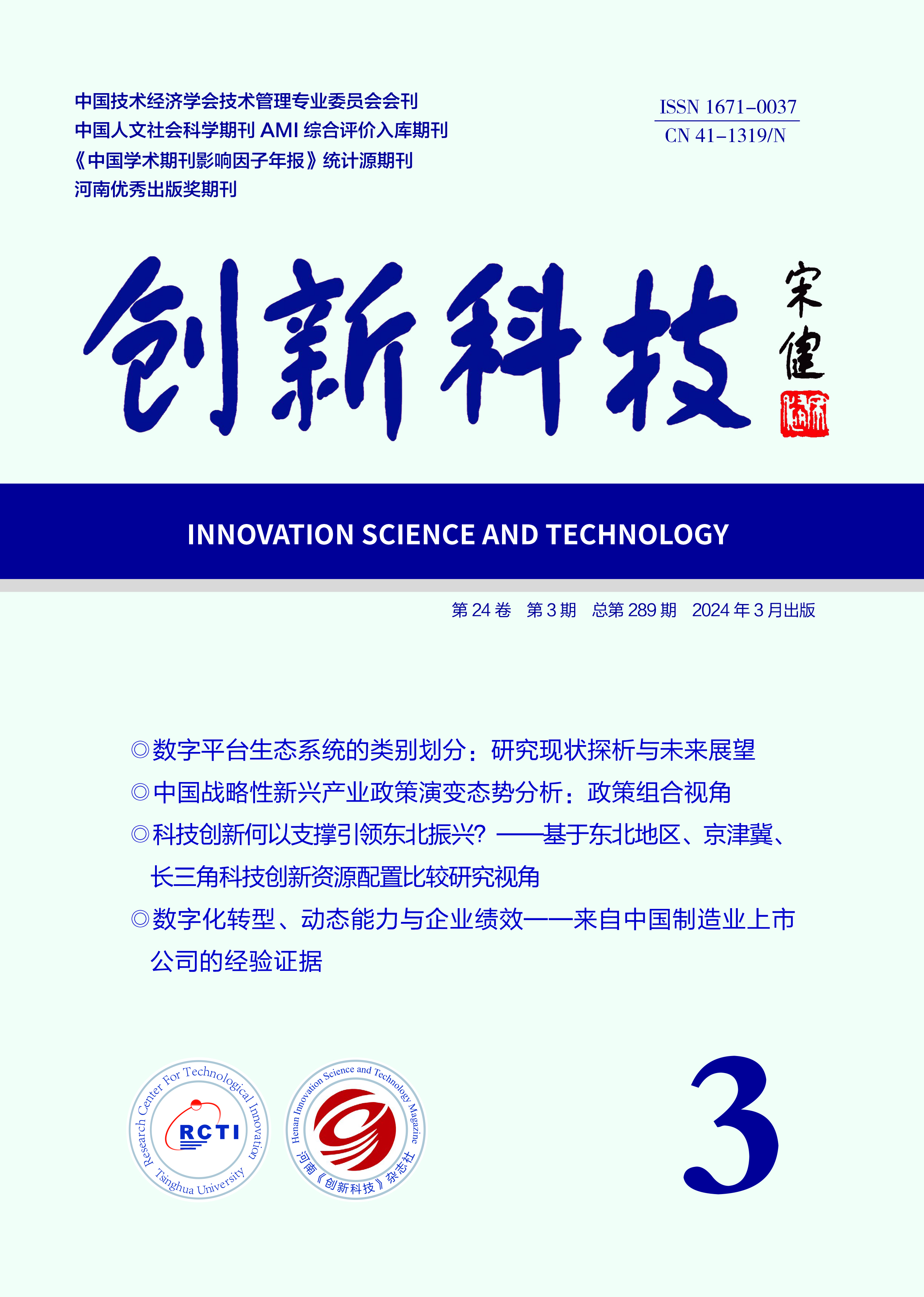INNOVATION SCIENCE AND TECHNOLOGY
Quick Search

All publication are peer-review
Peer review will take the from of double-blind review Judge objectively and impartially
There is no conflict of interest for the reviewer
Review articles shall be kept strictly confidential prior to publication
Enterprise's R&D and Innovation Management
Study on the Impact of Digital Transformation on Enterprise Re⁃ silience and its Path
Zhao Haoxing, Zhang Yifan
(School of Economics, Zhejiang Gongshang University, Hangzhou 310018, China)
Abstract: In the complex international economic landscape of the post-pandemic era, China, as an important participant in the global economy, is facing unprecedented challenges. On one hand, the domestic economic recovery is progressing slowly; on the other hand, rising antiglobalization sentiment and changes in international trade patterns are placing tremendous pressure on Chinese enterprises. Therefore, these enterprises need to continuously improve their resilience to navigate various uncertainties and risks. In a rapidly changing market environment, the improvement of enterprise resilience enables organizations to quickly adapt to the new normal, recover from disruptions, and seize new opportunities. Generally speaking, highly resilient enterprises can reorganize their resources, processes, and relationships during a crisis, recover quickly, and achieve counter-cyclical growth by leveraging challenges to their advantage. Digital transformation, as an emerging development model, provides new possibilities for enterprises. By implementing digital transformation, enterprises can better adapt to market changes, enhance their competitiveness, and thus remain invincible in fierce market competition. At the same time, this study also provides valuable insights for policymakers, helping them better promote the development of the digital economy and facilitate the transformation and upgrading of enter⁃ prises. Therefore, this article takes A-share listed companies in Shanghai and Shenzhen stock markets from 2011 to 2020 as research subjects and explores the impact of digital transformation on enterprise resilience, and investigates the underlying mechanisms through empirical testing methods. The aim is to provide empirical evidence regarding the relationship between digital transformation and enterprise resilience for enterprises under great pressure in the context of digital economy development. Through empirical testing and regression analysis, the findings suggest that digital transformation can reduce the volatility of corporate stocks and increase stock returns, ultimately enhancing corporate resilience. This result indicates that digital trans⁃ formation helps enterprises maintain stability in the face of uncertainty and improve their capa⁃ bility to resist risks. This article also explores the specific ways in which digital transformation positively affects enterprise resilience through mechanisms such as collaborative innovation, technological progress, and information disclosure. Furthermore, heterogeneity research shows that state-owned enterprises and large-scale enterprises experience a greater impact from digi⁃ tal transformation, particularly in terms of revenue growth; non-state-owned enterprises can ef⁃ fectively reduce stock return volatility through digital transformation, while small-scale enter⁃ prises are relatively less affected. These results have passed various robustness tests. In sum⁃ mary, in the era of the digital economy, enterprises can achieve more efficient resource alloca⁃ tion, improve production efficiency, reduce operating costs, and thus enhance their competitive⁃ ness and risk resistance capabilities through digital transformation.
Key words: digital transformation; enterprise resilience; collaborative innovation; technologi⁃ cal progress; information disclosure